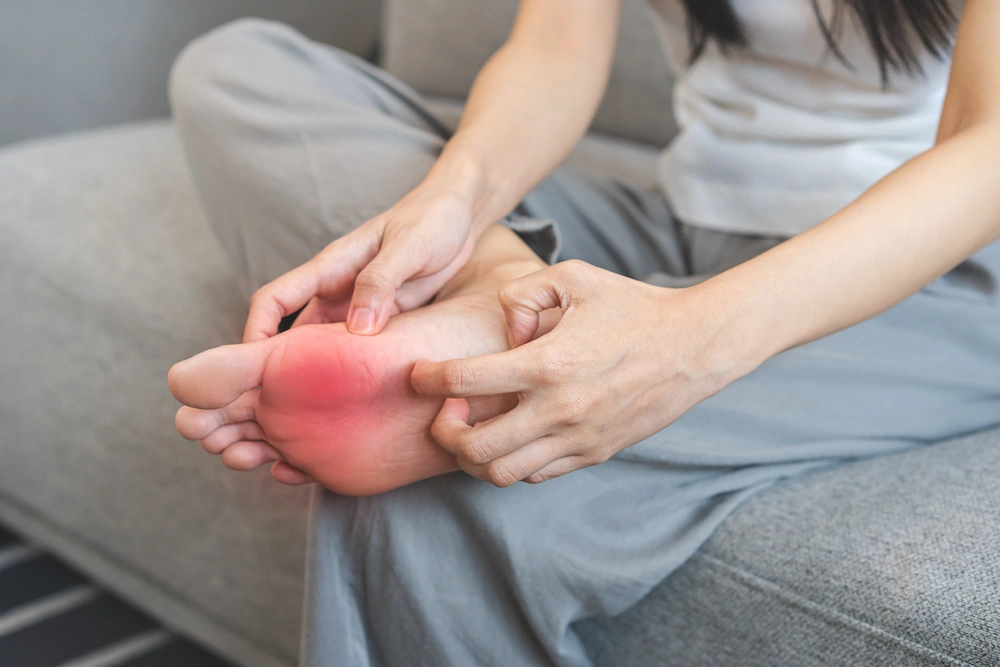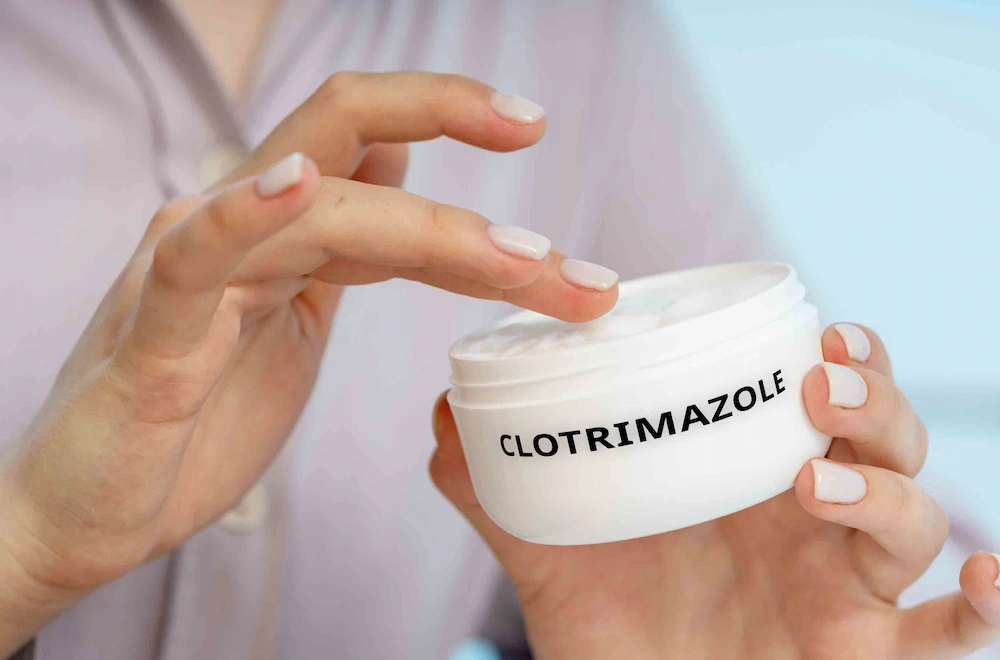5 Best Antifungal Creams: Your Guide to Soothing Skin Irritations

Fungal infections, those pesky skin conditions that cause itching, redness, and discomfort, can be a real nuisance. Whether it’s athlete’s foot, ringworm, or a yeast infection, finding the right treatment is crucial for relief and healing.
If you’re seeking the best antifungal cream to combat your skin woes, this comprehensive guide will explore the top over-the-counter and prescription options, delve into natural remedies, and provide expert insights to help you make informed decisions about your skin health.
What is a Fungal Infection?
Fungal infections, also known as mycoses, are caused by an overgrowth of fungi on your skin, hair, or nails. These microscopic organisms thrive in warm, moist environments and can lead to various skin conditions.
Common Types of Fungal Skin Infections:
- Athlete’s foot: Affects the feet, especially between the toes.
- Ringworm: A circular, itchy rash that can appear anywhere on the body.
- Jock itch: Affects the groin area.
- Yeast infections: Can occur in various areas, including the mouth, genitals, and skin folds.
Best Antifungal Cream: Over-the-Counter Options
Several effective antifungal creams are available without a prescription in Miami:
- Clotrimazole (Lotrimin AF, Desenex): A broad-spectrum antifungal cream that treats various fungal infections, including athlete’s foot, jock itch, and ringworm.
- Miconazole (Micatin, Monistat-Derm): Another popular choice for treating a range of fungal infections.
- Tolnaftate (Tinactin): Effective against athlete’s foot and other fungal infections.
- Butenafine (Lotrimin Ultra): A potent antifungal cream that can clear infections quickly.
- Undecylenic Acid (Cruex, Fungi-Nail): Often used for athlete’s foot and nail fungus.
Topical Antifungal Cream: How to Use It Effectively
- Clean and dry the affected area thoroughly.
- Apply a thin layer of cream to the rash and surrounding skin.
- Use as directed on the product label or as instructed by your doctor.
- Continue treatment for the recommended duration, even if symptoms improve.

OTC Antifungal Cream: Limitations and Considerations
While OTC antifungal creams can effectively treat many fungal infections, it’s important to be aware of their limitations:
- Not for all infections: Some fungal infections, especially those affecting the nails or internal organs, might require prescription-strength antifungal medication.
- Potential for side effects: Some people might experience skin irritation or allergic reactions to certain antifungal creams.
- Misdiagnosis: Self-treating with OTC creams might delay proper diagnosis and treatment of other skin conditions that mimic fungal infections.
How to Treat a Fungal Infection Naturally: Complementary Approaches
In addition to antifungal creams, certain natural remedies can support healing and soothe skin:
- Tea tree oil: Known for its antifungal properties. Dilute it in a carrier oil before applying to the skin.
- Coconut oil: Contains fatty acids with antifungal effects.
- Apple cider vinegar: Can help create an acidic environment that’s less favorable for fungal growth. Dilute it with water before applying to the skin.
Primary Care Doctor in Miami: When to Seek Expert Advice
If your skin condition doesn’t improve with over-the-counter treatments, or if you experience severe symptoms or signs of infection, it’s essential to consult a primary care doctor in Miami. They can:
- Accurately diagnose your skin condition.
- Prescribe appropriate antifungal medication if needed.
- Rule out other potential causes of your symptoms.
- Provide guidance on managing your condition and preventing recurrence.
Key Takeaways:
- Antifungal creams are effective treatments for various fungal skin infections.
- Choose the right cream based on the type and location of your infection.
- Consult a primary care doctor in Miami if your condition doesn’t improve or if you have concerns.
- Consider food sensitivity testing to identify potential food intolerances that might be contributing to your skin problems.
Remember, this article is intended for informational purposes only and should not be considered a substitute for professional medical advice. If you have any concerns about your health or a skin condition, consult a qualified healthcare professional.
FAQs: 5 Best Antifungal Creams
- Are all fungal infections contagious? Some fungal infections, like ringworm, can be spread through skin-to-skin contact or by sharing contaminated objects. Others, like yeast infections, are not typically contagious. If you’re unsure about the contagiousness of your skin condition, consult a doctor in Miami.
- Can I use any antifungal cream for any type of fungal infection? Different antifungal creams are formulated to target specific types of fungi. It’s essential to choose the right cream for your particular infection. If you’re unsure, consult a pharmacist or your primary care doctor.
- How long does it take for an antifungal cream to work? The treatment duration varies depending on the type and severity of the infection. Most fungal infections improve within a few weeks with consistent use of the antifungal cream. However, some infections, like nail fungus, might require longer treatment.
- I’ve been using an antifungal cream, but my rash isn’t getting better. What should I do? If your symptoms don’t improve or worsen after a week or two of using an over-the-counter antifungal cream, consult a doctor in Miami. They can assess your condition and recommend a different treatment approach or stronger prescription medication if needed.
- Are there any home remedies that can help prevent fungal infections?
Yes, here are a few tips:
- Keep your skin clean and dry, especially in areas prone to moisture, like your feet and groin.
- Avoid sharing personal items like towels or shoes.
- Wear breathable fabrics and change out of sweaty clothes promptly.
- If you have diabetes, keep your blood sugar levels under control.
Contact Us
Hiriart & Lopez MD, LLC
9950 SW 107th Ave STE 101,
Miami, FL 33176
305-274-8779
Phone: (305) 274-8779
Fax: (305) 274-0646
OPENING HOURS
Monday 7:30 AM–4:30 PM
Tuesday 7:30 AM–4:30 PM
Wednesday 7:30 AM–4:30 PM
Thursday 7:30 AM–4:30 PM
Friday 7:30–11 AM
Saturday Closed
Sunday Closed
OFFICE LOCATION
5 Best Antifungal Creams: Your Guide to Soothing Skin Irritations

Fungal infections, those pesky skin conditions that cause itching, redness, and discomfort, can be a real nuisance. Whether it’s athlete’s foot, ringworm, or a yeast infection, finding the right treatment is crucial for relief and healing.
If you’re seeking the best antifungal cream to combat your skin woes, this comprehensive guide will explore the top over-the-counter and prescription options, delve into natural remedies, and provide expert insights to help you make informed decisions about your skin health.
What is a Fungal Infection?
Fungal infections, also known as mycoses, are caused by an overgrowth of fungi on your skin, hair, or nails. These microscopic organisms thrive in warm, moist environments and can lead to various skin conditions.
Common Types of Fungal Skin Infections:
- Athlete’s foot: Affects the feet, especially between the toes.
- Ringworm: A circular, itchy rash that can appear anywhere on the body.
- Jock itch: Affects the groin area.
- Yeast infections: Can occur in various areas, including the mouth, genitals, and skin folds.
Best Antifungal Cream: Over-the-Counter Options
Several effective antifungal creams are available without a prescription in Miami:
- Clotrimazole (Lotrimin AF, Desenex): A broad-spectrum antifungal cream that treats various fungal infections, including athlete’s foot, jock itch, and ringworm.
- Miconazole (Micatin, Monistat-Derm): Another popular choice for treating a range of fungal infections.
- Tolnaftate (Tinactin): Effective against athlete’s foot and other fungal infections.
- Butenafine (Lotrimin Ultra): A potent antifungal cream that can clear infections quickly.
- Undecylenic Acid (Cruex, Fungi-Nail): Often used for athlete’s foot and nail fungus.
Topical Antifungal Cream: How to Use It Effectively
- Clean and dry the affected area thoroughly.
- Apply a thin layer of cream to the rash and surrounding skin.
- Use as directed on the product label or as instructed by your doctor.
- Continue treatment for the recommended duration, even if symptoms improve.

OTC Antifungal Cream: Limitations and Considerations
While OTC antifungal creams can effectively treat many fungal infections, it’s important to be aware of their limitations:
- Not for all infections: Some fungal infections, especially those affecting the nails or internal organs, might require prescription-strength antifungal medication.
- Potential for side effects: Some people might experience skin irritation or allergic reactions to certain antifungal creams.
- Misdiagnosis: Self-treating with OTC creams might delay proper diagnosis and treatment of other skin conditions that mimic fungal infections.
How to Treat a Fungal Infection Naturally: Complementary Approaches
In addition to antifungal creams, certain natural remedies can support healing and soothe skin:
- Tea tree oil: Known for its antifungal properties. Dilute it in a carrier oil before applying to the skin.
- Coconut oil: Contains fatty acids with antifungal effects.
- Apple cider vinegar: Can help create an acidic environment that’s less favorable for fungal growth. Dilute it with water before applying to the skin.
Primary Care Doctor in Miami: When to Seek Expert Advice
If your skin condition doesn’t improve with over-the-counter treatments, or if you experience severe symptoms or signs of infection, it’s essential to consult a primary care doctor in Miami. They can:
- Accurately diagnose your skin condition.
- Prescribe appropriate antifungal medication if needed.
- Rule out other potential causes of your symptoms.
- Provide guidance on managing your condition and preventing recurrence.
Key Takeaways:
- Antifungal creams are effective treatments for various fungal skin infections.
- Choose the right cream based on the type and location of your infection.
- Consult a primary care doctor in Miami if your condition doesn’t improve or if you have concerns.
- Consider food sensitivity testing to identify potential food intolerances that might be contributing to your skin problems.
Remember, this article is intended for informational purposes only and should not be considered a substitute for professional medical advice. If you have any concerns about your health or a skin condition, consult a qualified healthcare professional.
FAQs: 5 Best Antifungal Creams
- Are all fungal infections contagious? Some fungal infections, like ringworm, can be spread through skin-to-skin contact or by sharing contaminated objects. Others, like yeast infections, are not typically contagious. If you’re unsure about the contagiousness of your skin condition, consult a doctor in Miami.
- Can I use any antifungal cream for any type of fungal infection? Different antifungal creams are formulated to target specific types of fungi. It’s essential to choose the right cream for your particular infection. If you’re unsure, consult a pharmacist or your primary care doctor.
- How long does it take for an antifungal cream to work? The treatment duration varies depending on the type and severity of the infection. Most fungal infections improve within a few weeks with consistent use of the antifungal cream. However, some infections, like nail fungus, might require longer treatment.
- I’ve been using an antifungal cream, but my rash isn’t getting better. What should I do? If your symptoms don’t improve or worsen after a week or two of using an over-the-counter antifungal cream, consult a doctor in Miami. They can assess your condition and recommend a different treatment approach or stronger prescription medication if needed.
- Are there any home remedies that can help prevent fungal infections?
Yes, here are a few tips:
- Keep your skin clean and dry, especially in areas prone to moisture, like your feet and groin.
- Avoid sharing personal items like towels or shoes.
- Wear breathable fabrics and change out of sweaty clothes promptly.
- If you have diabetes, keep your blood sugar levels under control.
Contact Us
Hiriart & Lopez MD, LLC
9950 SW 107th Ave STE 101,
Miami, FL 33176
305-274-8779
Phone: (305) 274-8779
Fax: (305) 274-0646
OPENING HOURS
Monday 7:30 AM–4:30 PM
Tuesday 7:30 AM–4:30 PM
Wednesday 7:30 AM–4:30 PM
Thursday 7:30 AM–4:30 PM
Friday 7:30–11 AM
Saturday Closed
Sunday Closed

